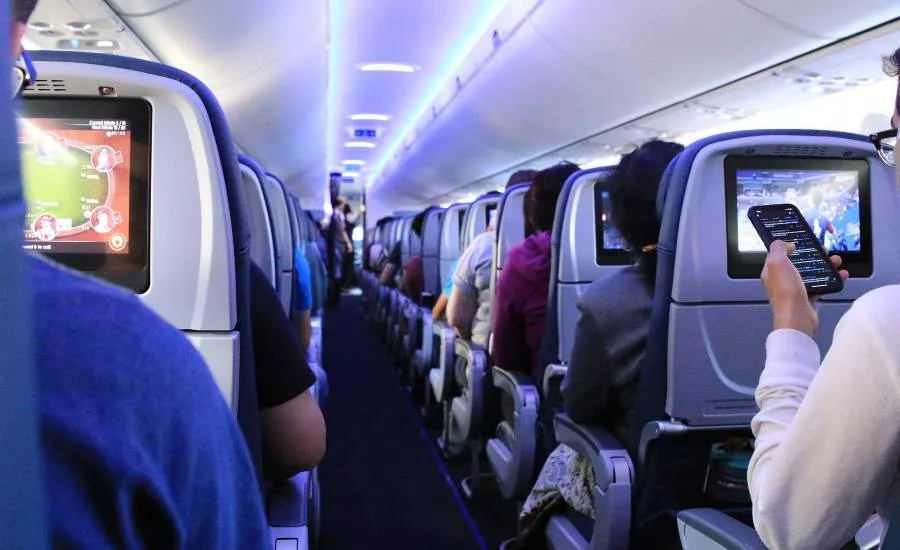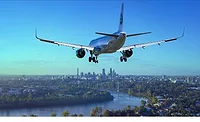Safety, security and self-defense for flight attendants becomes a necessary tool for risk mitigation

According to a recent study by the Association of Flight Attendants (AFA), 85% of flight attendants have dealt with unruly passengers in some way as of the beginning of 2021. In addition, nearly one in five of the surveyed attendants experienced physical incidents with passengers. These numbers are increasing as passengers become more outraged by the facemask mandates many airlines are enforcing.
Since the development of smartphones, more of these incidents are being captured on video, showing all-out brawls between passengers and the flight attendants on board. Aside from flight attendants being physically or verbally abused, disruptive passengers also become a threat to fellow passengers aboard an aircraft.
Because of the rise in incidents, the Transportation Security Administration (TSA) implemented self-defense training programs to equip flight attendants with the skills to subdue unruly passengers who get physically abusive.
Let’s explore more details about these self-defense training programs and how enterprise security leaders can facilitate such programs.
Why Are There Unruly Passengers Now?
Before the COVID-19 pandemic brought them to a halt, multiple programs were offered to flight attendants to teach them critical self-defense skills for their protection, as well as the safety of other passengers on board.
Take this example, for instance — a flight attendant lost two teeth due to a passenger punching her in the face on a Southwest 700 flight. Video recordings emerged once the flight landed. It shows the passenger attacking the flight attendant and calmly sitting back down. Once authorities could come aboard in San Diego, the passenger was arrested and charged with felony battery causing serious bodily injury.
The Federal Aviation Administration (FAA) has laws that protect flight attendants from physical harm and fine or even jail passengers who interfere with flight attendants. However, the risk for workplace violence and physical altercations with customers remain and risk professionals within any transportation organization needs to have a proactive approach to mitigation on their radar.
Here are some of the reasons why some passengers are becoming more agitated:
- Mask compliance
- Alcohol inebriation
- Routine safety reminders
- Flight delays
- Flight cancellations
Certain times of the year tend to be more dangerous than others. For example, the National Security Council outlines the deadliest days for travel in the United States. Independence Day, Thanksgiving Day, and Memorial Day are considered the top three deadliest.
During the holidays, more people are drinking alcohol, and if they’re drinking during a flight, there’s a higher risk of them becoming intoxicated. Flight attendants have to learn how to subdue intoxicated passengers, which only adds to their responsibility of creating a safe flying environment.
In some cases, flights are forced to divert as a result of disruptions from drunk passengers. In June 2021, a Delta flight headed from L.A. to N.Y. had to land in Detroit because a passenger was reportedly “out of control, drinking from a bottle.” This came just after a Delta flight attendant hogtied a passenger who was trying to break into the flight deck.
Regardless of the reason, abuse toward flight attendants has increased, and the AFA is calling on both the FAA and Department of Justice (DOJ) to protect passengers and crew members from disruptive, dangerous passengers.
The Need for Self-Defense Training
When passengers get violent, attendants must prevent them from attacking themselves or other passengers onboard — this is where self-defense training comes in.
Crew members now learn how to take specific measures to subdue passengers, whether it’s using dummies to learn how to throw elbow jabs or kicks to the groin area. The goal is to equip flight attendants with the skills they may need to use while on the job. Naturally, the question arises, “Should flight attendants worry about facing abuse while working?”
No matter the industry, employees should feel safe in their workplace. Still, the travel trend of unruly passengers is causing a disruption. Self-defense serves as a viable solution, but what will the future of air travel look like? Should flight attendants have to take on the new responsibility of protecting themselves from aggressive passengers? It seems as though the only answer to this question is “yes” — for now.
A “zero-tolerance” policy may be a more permanent solution to the issue. Suppose passengers are aware of the consequences of being disruptive or aggressive. In that case, they may be less likely to act out in any way. That would be the ultimate goal.
The Uncertain Future of Air Travel
It’s challenging to find feasible solutions to this ongoing aviation problem facing the industry.
Based on travel trends, there’s been an uptick in passengers choosing to fly rather than use other modes of transportation. While it’s important for flight attendants to protect themselves from injury, the main priority should be implementing a zero-tolerance policy for passenger disruptions.
Looking for a reprint of this article?
From high-res PDFs to custom plaques, order your copy today!





